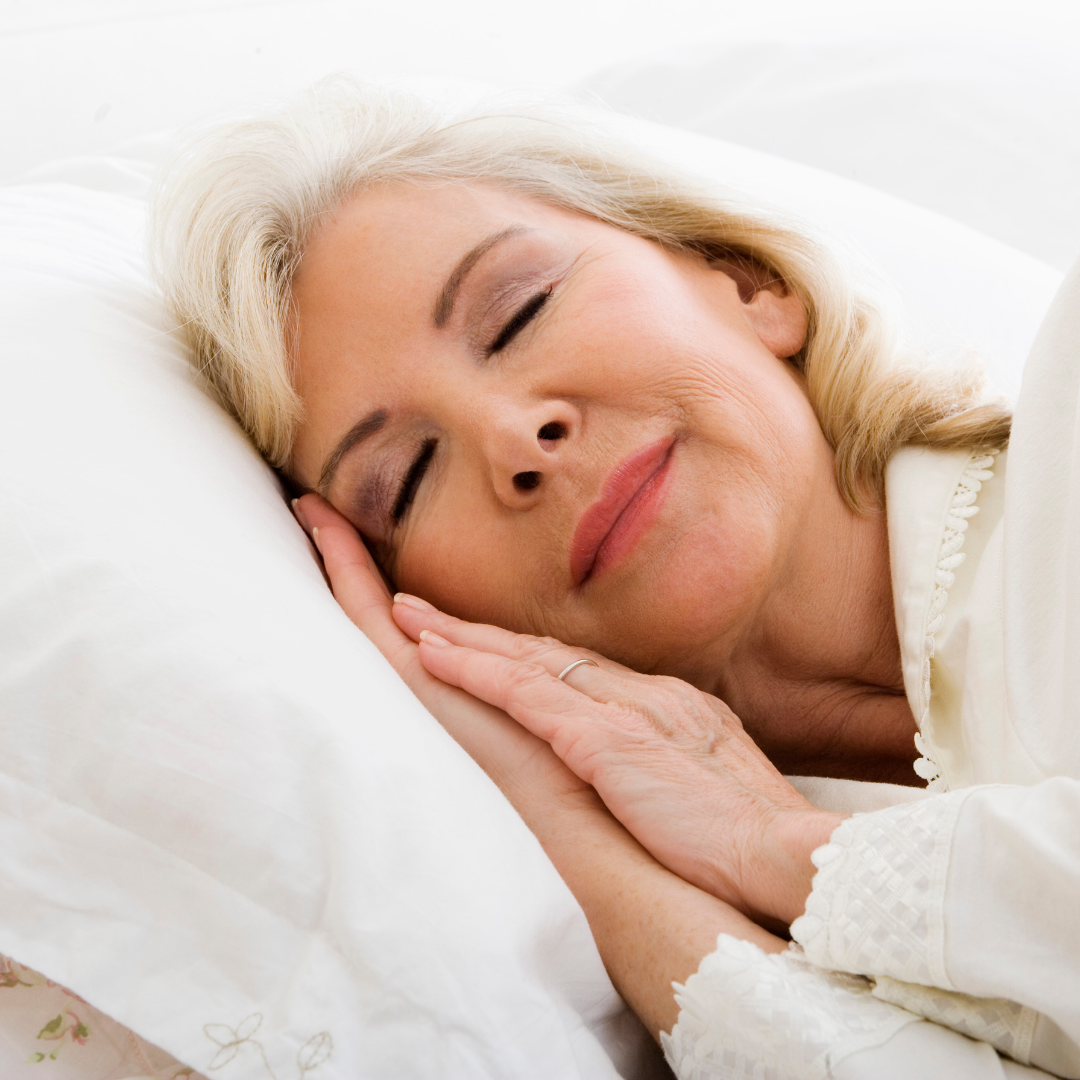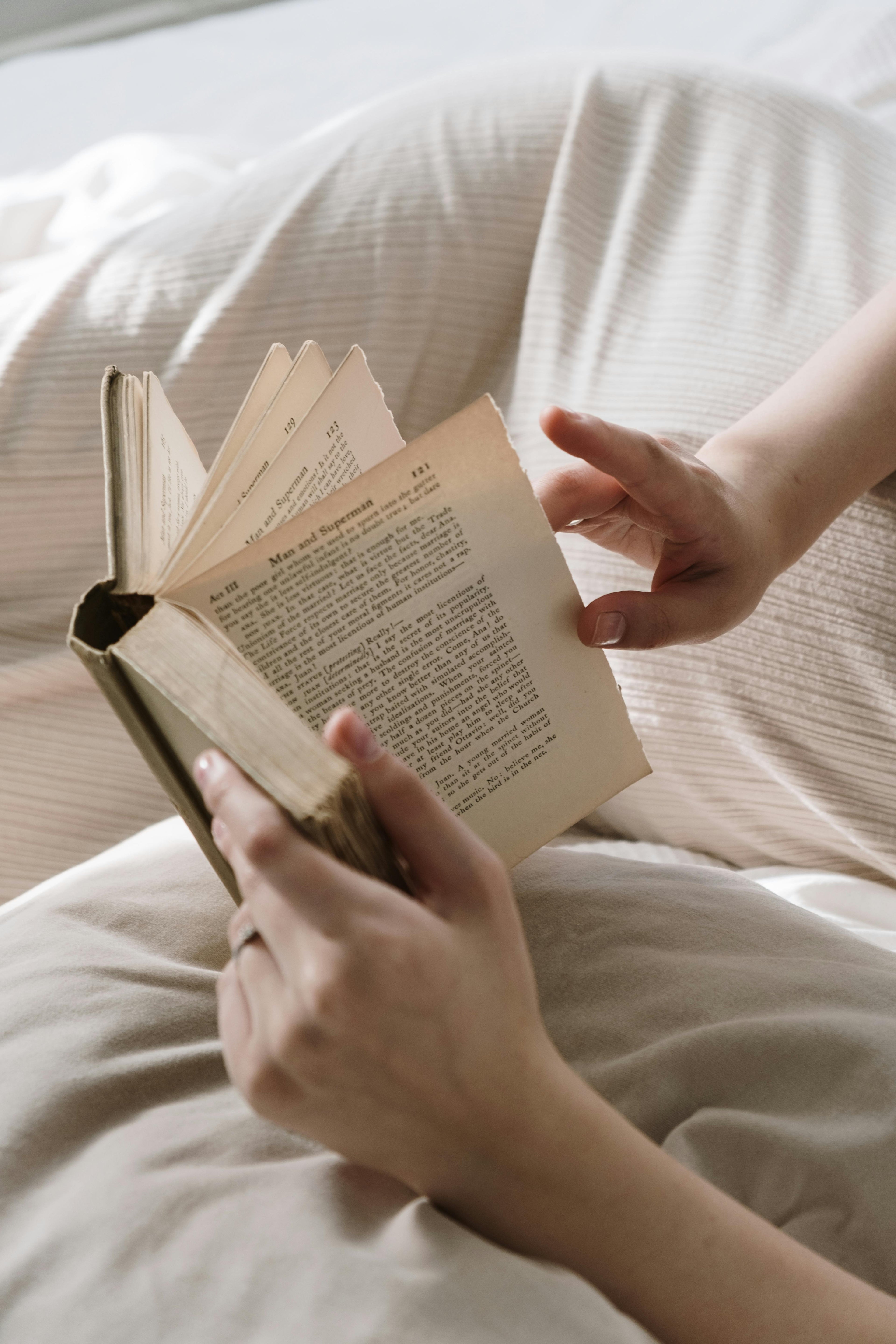it's 2 AM, and you’re wide awake. Again. Maybe you woke up drenched in sweat, or maybe your mind is racing with anxious thoughts. You toss, you turn, and before you know it, the sun is up, and you're facing another exhausting day.
If you’re going through menopause, disrupted sleep isn’t just an occasional frustration, it can feel like a never-ending battle. Hormonal shifts, night sweats, and increased anxiety all work against you, making it harder to fall asleep, stay asleep, and wake up feeling rested.
The good news? You don’t have to rely on sleeping pills or just "deal with it." There are natural, science-backed strategies that can help you sleep better, feel more energised, and take back control of your nights.
In this article, you’ll learn:
✅ Why menopause affects your sleep so much
✅ Practical lifestyle changes that make a difference
✅ Natural remedies to promote deep, restful sleep
✅ Mindset shifts to help you relax and unwind
Why Menopause Wreaks Havoc on Your Sleep

Menopause doesn’t just change your body, it changes the way you sleep. If you’ve been struggling with restless nights, there’s a scientific reason for it. Here’s what’s happening behind the scenes:
1. Hormonal Chaos Disrupts Your Sleep Cycle
Estrogen and progesterone, two key hormones that regulate sleep, start to decline during menopause. This causes:
- More night-time awakenings – Lower estrogen levels make it harder to stay asleep.
- Increased body temperature – Estrogen helps regulate body heat, so when it drops, night sweats and hot flashes become more frequent.
- Greater sensitivity to stress – Progesterone has a calming effect, and without enough of it, you may feel more anxious, making it harder to wind down.
2. Night Sweats Overheat Your Body
Hot flashes aren’t just uncomfortable—they also disrupt your sleep cycle. When your body temperature spikes, you wake up suddenly, often drenched in sweat. This cycle can repeat several times a night, leaving you exhausted by morning.
3. Melatonin Levels Drop
Melatonin is your body's natural sleep hormone, and it naturally decreases with age. However, menopause accelerates this decline, making it harder for you to fall asleep and stay in deep, restorative sleep stages.
4. Increased Anxiety and Mood Swings
Many women experience increased stress, anxiety, and even depression during menopause. Racing thoughts and worry can keep you awake, making insomnia even worse.
The Bottom Line?
Your body is going through major changes, but understanding the root causes of your sleep struggles is the first step to fixing them. The good news is that there are natural ways to balance your body, cool down night sweats, and calm your mind for deeper sleep. Let’s explore how.
Natural Remedies That Actually Work
If you’re looking for natural ways to improve sleep during menopause, there are several remedies backed by science. From herbal supplements to relaxation techniques, these can help you fall asleep faster and stay asleep longer.
1. Herbal Teas and Supplements
Certain herbs and minerals have been shown to support sleep and reduce menopause symptoms.
- Magnesium – Helps relax muscles, ease anxiety, and promote restful sleep. Magnesium glycinate is particularly effective for sleep.
- Valerian Root – A natural sedative that may help improve sleep quality and reduce the time it takes to fall asleep.
- Ashwagandha – An adaptogen that lowers stress hormones and promotes relaxation.
- Chamomile Tea – Known for its calming properties, it can help ease anxiety before bed.
- Passionflower – Supports GABA production, a neurotransmitter that helps the brain relax.
2. Relaxation Techniques to Calm Your Mind
Since anxiety and stress often worsen sleep problems during menopause, relaxation techniques can make a big difference.
- Deep Breathing – Try the 4-7-8 method: inhale for 4 seconds, hold for 7 seconds, and exhale for 8 seconds. This slows the heart rate and encourages relaxation.
- Progressive Muscle Relaxation – Tense and relax each muscle group in your body, starting from your feet up to your head.
- Guided Meditation – Listening to a meditation before bed can help quiet racing thoughts. Apps like Calm or Headspace offer good options.
- Aromatherapy – Lavender essential oil has been shown to improve sleep quality when used in a diffuser or applied to pulse points.
3. Support Your Natural Sleep Cycle
Instead of relying on melatonin supplements, you can naturally boost your body’s melatonin production by:
- Getting sunlight in the morning – Natural light exposure early in the day helps regulate your body’s internal clock, making it easier to fall asleep at night.
- Dimming the lights in the evening – Avoid bright lights and blue light from screens at least an hour before bed to encourage natural melatonin release.
- Establishing a consistent bedtime – Going to sleep and waking up at the same time every day strengthens your sleep-wake cycle.
The Bottom Line?
Natural remedies can provide real relief without the need for medication. A combination of herbal supplements, relaxation techniques, and light exposure can help you sleep better and wake up feeling more refreshed.
Mindset & Stress Management for Deeper Sleep

Menopause doesn’t just affect your body, it affects your mind too. Increased anxiety, mood swings, and stress can keep you lying awake, staring at the ceiling. Managing stress is just as important as adjusting your diet or bedtime routine when it comes to improving sleep. Here’s how to calm your mind and ease into deeper rest.
1. Quiet Night-Time Anxiety
Racing thoughts are one of the biggest culprits behind menopausal insomnia. To slow them down, try:
- Journaling Before Bed – Write down any worries or to-do lists before lying down. This helps clear your mind so you’re not mentally running through tomorrow’s tasks at 2 AM.
- Gratitude Practice – Listing three things you’re grateful for can shift your focus from stress to positivity, helping you relax.
- Cognitive Behavioural Techniques – If your mind won’t stop spinning, remind yourself: "I don’t need to solve this problem right now. I will handle it tomorrow when I’m rested." This can help break the cycle of anxious overthinking.
2. Train Your Brain to Associate Bed with Sleep
If you spend hours tossing and turning, your brain starts associating your bed with frustration instead of rest. Rebuild a positive sleep connection by:
- Getting out of bed if you can’t sleep – If you’ve been lying awake for more than 20 minutes, get up and do something relaxing (like reading or gentle stretching) in dim lighting, then try again.
- Using your bed only for sleep and relaxation – Avoid working, scrolling on your phone, or watching TV in bed. This helps your brain link your bed to rest, not stimulation.
3. Use Relaxation Audios to Wind Down
Guided relaxation can help signal to your body that it’s time to rest. Try:
- Sleep Stories or Meditation Audios – Listening to a slow-paced story or guided relaxation can help ease you into sleep.
- Nature Sounds or White Noise – Gentle background sounds can block out disruptions and create a calming sleep environment.
- Body Scan Meditation – A guided practice where you mentally check in with each part of your body, releasing tension as you go.
Small Changes, Big Impact
Improving sleep during menopause doesn’t require drastic changes—small, consistent habits can make a big difference. By understanding how hormonal shifts affect your sleep and making simple lifestyle adjustments, you can take back control of your nights.
Key Takeaways:
- Support your body naturally by eating magnesium-rich foods, staying hydrated, and avoiding caffeine or alcohol before bed.
- Create a sleep-friendly environment by keeping your bedroom cool, investing in breathable bedding, and reducing light exposure in the evening.
- Try natural remedies like herbal teas, relaxation techniques, and aromatherapy to promote rest without medication.
- Manage stress and anxiety with journaling, guided meditation, and deep breathing to quiet a racing mind.
- Stick to a routine by maintaining consistent sleep and wake times to help your body establish a natural rhythm.
Menopause might be a challenging phase, but with the right approach, you can improve your sleep naturally and wake up feeling more energised and refreshed.
Now it's time to put these strategies into action, start with just one or two changes tonight and build from there. Better sleep is within your reach.

